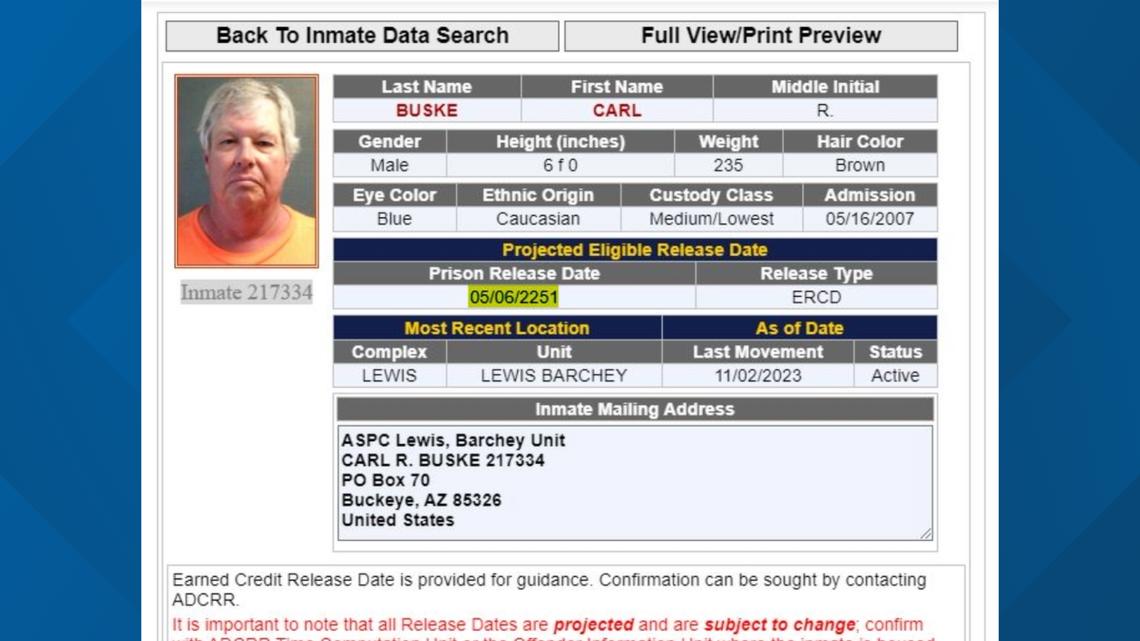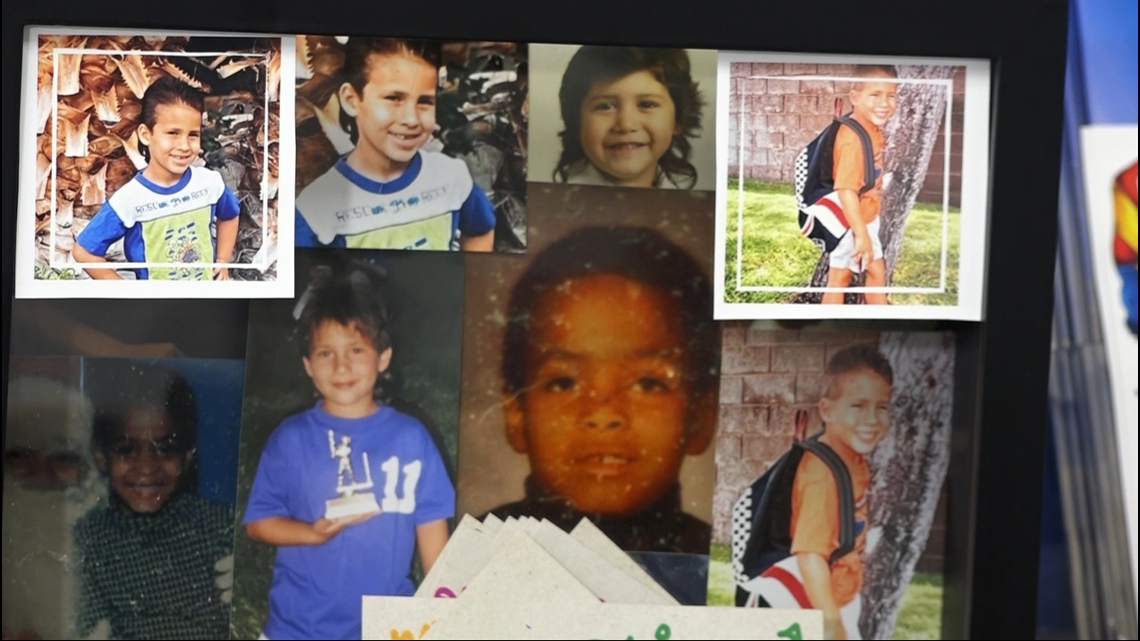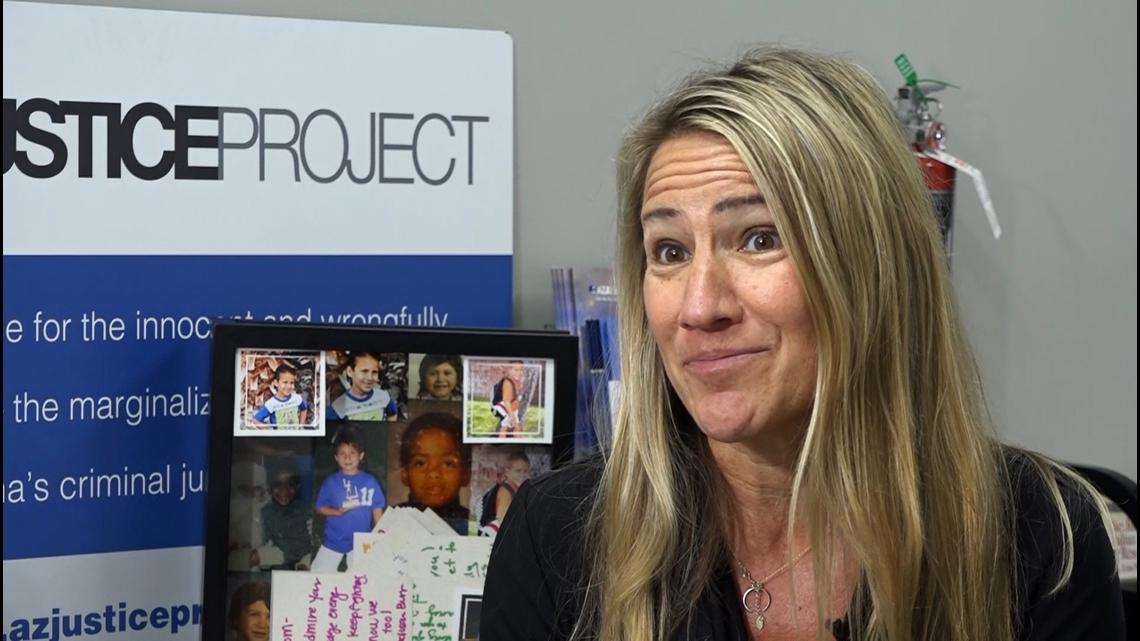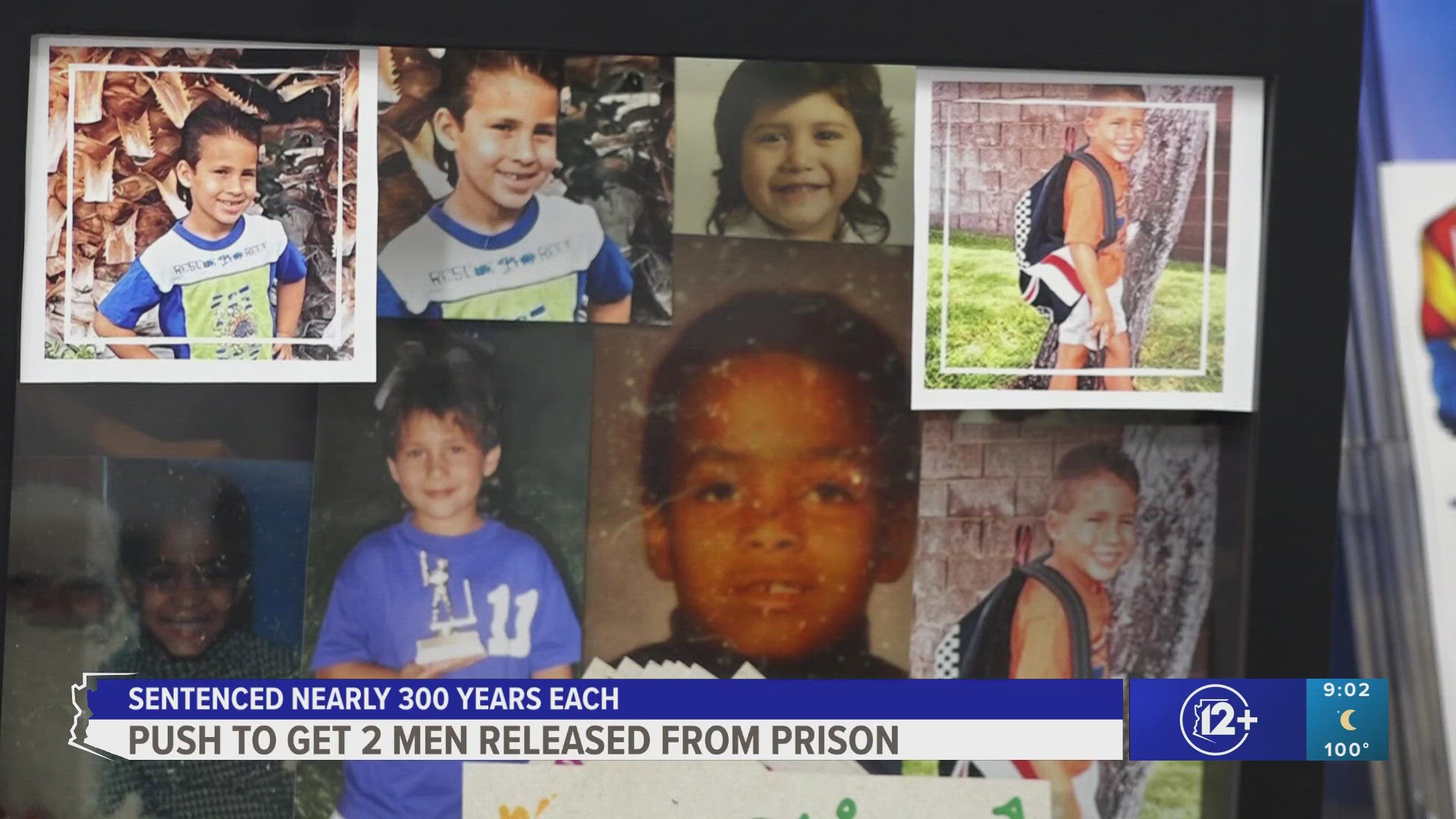PHOENIX — Nearly 300 years — that's how long Carl Buske and Atdom Patsalis were sentenced to serve in Arizona prisons for their respective crimes.
In 2007, the court found Buske to be in possession of 29 printed images of child pornography. Each felony conviction carried a 10-year sentence. Patsalis was sentenced in 2015 for 25 counts of non-violent, non-dangerous theft-related crimes in Mohave County.
Their prison terms: 290 years for Buske and 292 years for Patsalis.
Even though Buske's conviction was what Leonardo says was required by law, the severity of his sentence has continued to loom over Judge John Leonardo.
After all, he was the man who put Buske in prison for the next three centuries. Now, nearly 17 years later, he's working to get Buske out.
“290 years in prison, and he was at the time, I think, 47 years old,” Leonardo recounted when he spoke with 12News.
Leonardo is a retired Pima County Superior Court Judge and former U.S. Attorney in Arizona. He said his goal was always to achieve justice, but he now fears that he has become “an instrument of injustice" instead.
When Buske was convicted and sentenced to 29 felonies related to possessing images of child sex abuse, Leonardo was required by law to impose a sentence of 10 years per image. Data from the Arizona Department of Corrections lists his release date as May 6, 2251.


That sentence is far longer than the roughly 5.5 years a federal review found of non-production child pornography offenses.
“You can actually rape or physically molest a child and have a less sentence than this. So when you think of all that, it really is no rational basis to have this kind of area sentence scheme,” said Leonardo.
That lack of rationality is why Leonardo said he's helping take Buske's case before the Arizona Board of Executive Clemency. He hopes to reduce Buske's sentence to the 17 years he has already served, and changed the law that originally demanded the 290-year sentence.
“Well, I'm hopeful. I think it's rare that the board recommends commutation, and it's rare that the governor grants it, but I noticed in the news just couple of days ago, a similar case,” said Leonardo.
That similar case was a fight to undo Patsalis's 292-year prison sentence, according to Arizona Justice Project Executive Director Lindsay Herf. She's been working his case for six years, advocating for his release.
“It means that a person who was struggling and, you know, had nowhere else to turn and committed some low-level property offenses is not going to die in prison because of that low point in his life,” said Herf.
'Redemption is possible.'
It started in November of 2013 — in the cars and garages and houses of Bullhead City.
Patsalis, then 21 and suffering from a drug addiction, began a string of burglaries that lasted 10 weeks and hit roughly 20 homes.
He stole random items from homes, garages and vehicles, but never had a confrontation with any of the rightful owners. According to the Arizona Justice Project, he just wanted to barter the items for a place to stay.
Patsalis received a consecutive sentence that put his release date sometime around the year 2300.


During the 2015 sentencing of the then 22-year-old Patsalis, Judge Pro Tempore Billy K. Sipe Jr told the then 22-year-old Patsalis called the consecutive sentences "fairly harsh, if not incomprehensible."
"I realize that the sentence that I just imposed is a very harsh sentence. It’s — quite frankly, the court even agrees — it’s an incomprehensible sentence," Judge Pro Tempore Billy K. Sipe Jr. said during Patsalis's 2015 sentencing, as reported by the Arizona Republic.
"I cannot send the message that you can burglarize multiple houses and victimize multiple people on multiple occasions and you'll simply get one sentence for it," the judge continued.
Judge Sipe did not return 12News's request for further comment.
After Patsalis with the Arizona Justice Project tried and failed to have the sentence overturned, claiming it was cruel and unusual punishment, Herf and her team sought executive clemency.
Data from the Arizona Department of Corrections shows people similar to Patsalis weren't sentenced to anywhere near the time he was.
“The average time for someone who committed the same crimes that Atdom did was five to seven years. So five to seven years versus 292 years,” said Herf.
When the Arizona Justice Project presented its data to the Arizona Board of Executive Clemency in May, they showed another stark reality of Patsalis's sentence.
Out of a list of 262 people, Patsalis was serving the 33rd-longest prison sentence in the state of Arizona.
"Atdom was the only person on that list who was convicted of non-dangerous offenses,” said project director Shawnee Ziegler.
Their presentation struck a chord. The board voted unanimously to recommend the governor commute Patsalis' sentence. In July of this year, Gov. Hobbs did just that.
"I personally don't think the system should be designed to take a 21-year-old kid and just throw them away, and that's what happened here," said Mina Mendez, the chair of the Arizona Board of Executive Clemency, said last week as the board granted parole to Patsalis.
"He is a person who has shown in his 10 and a half years while he's been in prison, that you know, redemption is possible, and he deserves a second chance, and the board saw that in him," said Herf.


Last week, the board decided Patsalis will be released on parole.
"Thank you very much. I appreciate this this opportunity and I'm not gonna let you guys down,” said Patsalis. He told the board that he already has a support system ready for once he's released.
Now, Patsalis has a chance to realize his dreams, to start a family and to record the three albums that he wrote over the years.
“This right here, this clemency board is literally hope,” said Patsalis.
And it's that hope for both justice and redemption that Judge Leonardo now echoes.
“It’s important, not only for all of us in society but for those who are serving those kinds of sentences,” said Leonardo. “There’s some kind of hope.”
>> Download the 12News app for the latest local breaking news straight to your phone.
Up to Speed
Catch up on the latest news and stories on the 12News YouTube channel. Subscribe today.

